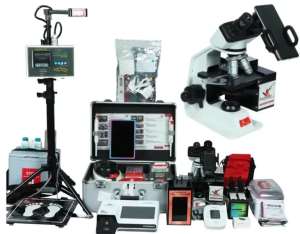
Introduction
Ghana is making significant strides in healthcare modernization, yet one major challenge continues to endanger lives—the late detection of life-threatening diseases, especially kidney and liver disorders. Despite improvements in healthcare access, countless Ghanaians, particularly in rural and underserved areas, only receive diagnoses when conditions have reached irreversible stages.
This public health crisis demands urgent action. Without routine early screening, patients experience severe complications, unaffordable treatment costs, and an increased reliance on foreign medical referrals—a clear indication that our healthcare system must pivot toward preventive solutions.
To prevent avoidable deaths, Ghana must prioritize a nationwide expansion of diagnostic screening, equipping CHPS compounds with essential kidney and liver testing capabilities to ensure early detection, timely medical intervention, and equitable healthcare access for all.
The Consequences of Late Diagnosis
📌 Over 13% of Ghanaians unknowingly suffer from chronic kidney disease (CKD), with most cases diagnosed only at end-stage failure.
📌 Liver disease cases, largely linked to hepatitis B, alcohol-related conditions, and metabolic disorders, are rising, yet screening availability remains scarce in primary healthcare centers.
📌 The high cost of dialysis makes it unattainable for many patients, while transplant services remain financially inaccessible to most citizens.
With late detection reducing survival rates, Ghana’s health system continues to bear rising costs, higher mortality figures, and a growing dependence on foreign healthcare solutions for diseases that could be prevented or managed locally.
A Strategic Healthcare Intervention: Equipping CHPS Compounds for Early Diagnosis
Early screening must become a national priority, ensuring Ghanaians receive timely intervention before illnesses progress to terminal stages.
Key Components of the Initiative:
✅ Deployment of Diagnostic Equipment
Portable kidney and liver function testing kits for community-based screenings. Ultrasound machines for basic abdominal scans, supporting early disease identification. Blood and urine analysis facilities for detecting early markers of organ failure.
✅ Healthcare Worker Training
Specialized education for CHPS health workers on diagnosing early-stage kidney and liver diseases. Strengthening diagnostic technology integration into community health worker programs.
✅ Public Awareness & Community Engagement
Nationwide sensitization campaigns promoting preventive health check-ups. NHIS-supported screenings, ensuring affordability for low-income patients.
✅ Stakeholder Collaboration & Policy Framework
Government partnerships with public and private health institutions to secure funding and technical support. Aligning this initiative with health modernization policies advanced under President John Dramani Mahama, emphasizing community-driven healthcare improvements.
Aligning With Ghana’s National Healthcare Vision
This initiative directly supports Ghana’s strategic health priorities, including:
🎯 Strengthening CHPS compounds as fully-equipped community healthcare hubs.
🎯 Reducing foreign medical referrals, establishing Ghana as a self-sustaining healthcare provider.
🎯 Expanding NHIS services to cover early screenings, easing financial burdens for patients.
🎯 Elevating Ghana’s health infrastructure, ensuring long-term medical capacity-building.
By prioritizing early detection, Ghana saves lives, reduces healthcare costs, and moves toward a prevention-focused health system.
A Call to Leadership: Immediate Action Required
Ghana must act now. Every day without early screening protocols results in avoidable deaths, escalating treatment costs, and continued healthcare inefficiencies.
📢 We urge:
His Excellency the President of the Republic of Ghana and Commander-in-Chief Honorable Kwabena Mintah Akandoh (MP), Minister of Health National policymakers, healthcare stakeholders, and the Ghanaian public
—to champion this life-saving initiative, ensuring that CHPS diagnostic expansion becomes a national priority.
📍 Prevention must lead healthcare policy reform.
📍 Early diagnosis saves lives—Ghana must act now.
Retired Senior Citizen
Teshie-Nungua
[email protected]


